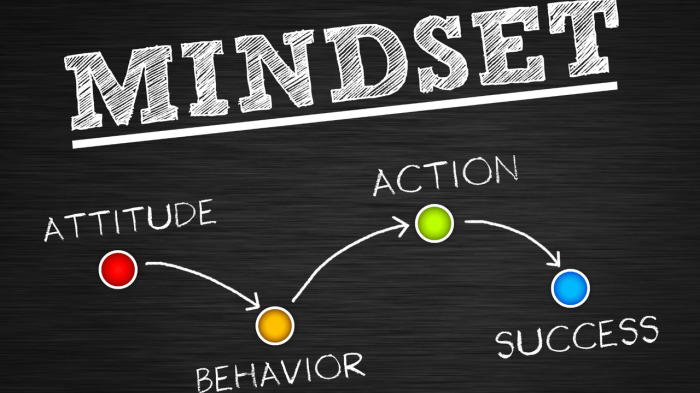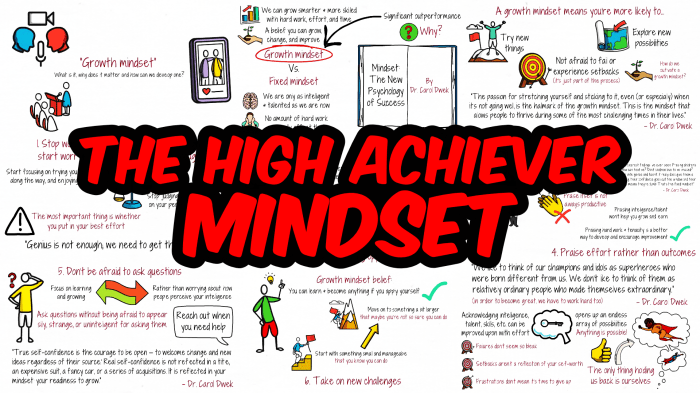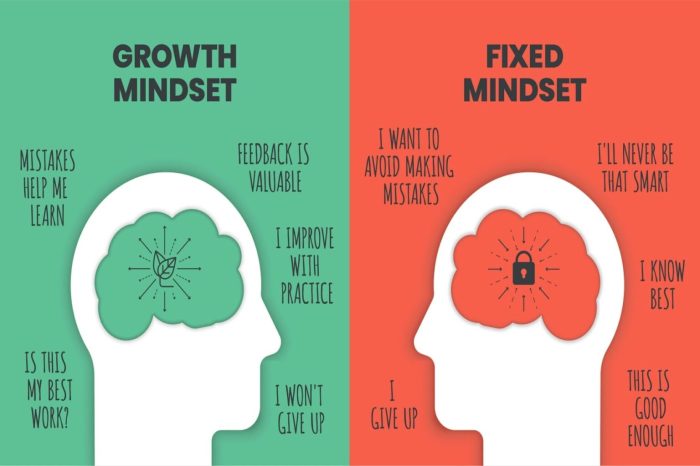Ever feel like you’re stuck in a rut, like you’re just going through the motions? Maybe you’re tired of the same old routine and crave a little more spontaneity in your life. Well, get ready to ditch the script and embrace the power of improv! Think of it like a secret weapon that can unlock your potential, boost your confidence, and even help you nail that big presentation.
It’s time to break free from the mundane and learn how to thrive in the unpredictable world, one “Yes, and…” at a time.
This guide dives deep into the improv mindset, showing you how to tap into the core principles of improv and apply them to your everyday life. We’ll explore how embracing the unexpected can lead to personal and professional growth, and how to use improv techniques to navigate challenges and seize opportunities like a boss.
So, get ready to unleash your inner improvisational genius and discover the superpower that’s been hiding within you all along.
Understanding the Improv Mindset

Imagine a world where you’re always ready for anything, where you can roll with the punches and turn any situation into an opportunity. That’s the power of the improv mindset. It’s not just about making people laugh on stage; it’s a way of thinking and behaving that can unlock your potential in every aspect of your life.
The Core Principles of Improv
Improv is built on a set of core principles that can be applied to everyday life. Here are some of the key ones:
- “Yes, and…”This is the fundamental principle of improv. It means accepting what your partner says and building on it, creating a collaborative and creative environment. In everyday life, this translates to being open to new ideas, embracing challenges, and finding solutions together.
- Listen Actively. Improv actors need to pay close attention to their partners to react effectively. This skill is crucial in communication, leadership, and teamwork. By actively listening, you can understand others better, build stronger relationships, and avoid misunderstandings.
- Be Present.
Improv requires being fully present in the moment, letting go of past regrets and future worries. This helps you focus on the task at hand and respond authentically to whatever comes your way.
- Embrace Failure. In improv, mistakes are opportunities for growth.
Don’t be afraid to make mistakes, learn from them, and move on. This mindset fosters resilience and adaptability, allowing you to bounce back from setbacks and keep moving forward.
Benefits of Embracing an Improv Mindset
The improv mindset can bring numerous benefits to your personal and professional life:
- Enhanced Creativity: Improv encourages thinking outside the box, generating new ideas, and finding innovative solutions to problems.
- Improved Communication: Active listening, clear communication, and the ability to build on others’ ideas are essential for effective communication.
- Increased Confidence: Improv helps you overcome fear of failure and embrace challenges, leading to increased self-assurance and a more confident approach to life.
- Stronger Relationships: The improv mindset fosters empathy, understanding, and collaboration, which are crucial for building strong and lasting relationships.
Real-World Examples of Improv Techniques
Improv techniques have proven successful in various fields, including:
- Business: Improv helps teams brainstorm ideas, solve problems collaboratively, and adapt to changing market conditions. For example, Google uses improv techniques to foster creativity and innovation within its workforce.
- Education: Improv can make learning more engaging and interactive, encouraging students to participate actively and think critically.
For example, teachers use improv games to improve communication skills and build confidence in students.
- Healthcare: Improv techniques can help healthcare professionals improve communication with patients, build rapport, and reduce stress. For example, doctors use improv to practice difficult conversations and build empathy.
Key Elements of Improv for Success

Improv isn’t just about making people laugh; it’s a powerful tool for developing essential skills that can be applied to all aspects of life. The improv mindset equips you with the ability to think on your feet, embrace the unexpected, and collaborate effectively.
So you wanna be a boss at life, right? Level up your game with “The Improv Mindset: How to Make Improvisation Your Superpower for Success.” This bad boy’s gonna teach you how to roll with the punches and turn any situation into a win.
Ready to unlock your inner rockstar? Download And Listen Here and get ready to dominate the world, one improv move at a time!
Let’s dive into the key elements that make improv such a valuable skill.
“Yes, And…”
The “Yes, And…” principle is the cornerstone of improv. It’s a simple yet profound way to build upon ideas and create a collaborative and positive environment. Instead of rejecting or negating an idea, you accept it and add to it.
Think of it as building a tower, each person adding a brick to make it taller and stronger. This principle encourages a spirit of collaboration and creativity, where everyone’s contribution is valued and built upon.
“Yes, and…” is a powerful tool for building upon ideas and fostering a positive environment.
Here are some practical tips for implementing “Yes, And…” in your daily life:
- In conversations:When someone shares an idea, instead of immediately dismissing it, start with “Yes, and…” and build upon it. For example, if someone suggests going to the movies, you could say, “Yes, and let’s grab some popcorn and drinks.” This encourages further discussion and collaboration.
Think about the improv mindset like a superpower, right? It’s all about rolling with the punches and making the most of whatever life throws your way. Kind of like how Mel Baron’s family navigated life in his memoir, Beyond the Dream A Family Journey Without Limits.
Their story shows that embracing the unexpected can lead to some truly awesome outcomes. So, next time you’re faced with a challenge, channel your inner improv master and see what amazing things you can create!
- In problem-solving:When facing a challenge, embrace the “Yes, and…” approach to generate solutions. Instead of focusing on what won’t work, build upon the ideas that have potential. For example, if a project is behind schedule, instead of saying, “This is impossible,” you could say, “Yes, and we can prioritize the most critical tasks and work overtime to catch up.” This shifts the focus to finding solutions.
- In brainstorming:“Yes, And…” is a powerful tool for generating creative ideas. Instead of criticizing ideas, accept them and add to them. This fosters a more open and collaborative environment where ideas can flow freely.
Active Listening
Active listening is essential for successful improv and for effective communication in general. It’s more than just hearing the words; it’s about understanding the speaker’s intent, emotions, and nonverbal cues. Active listening allows you to respond appropriately, build rapport, and create a genuine connection.
Active listening goes beyond simply hearing the words; it’s about understanding the speaker’s intent, emotions, and nonverbal cues.
Here are some practical exercises for developing active listening skills:
- Mirror exercise:Partner with someone and take turns speaking for a few minutes. The listener’s goal is to mirror the speaker’s body language, tone, and facial expressions. This helps to develop empathy and understanding.
- Summarize and paraphrase:After someone has spoken, summarize their main points in your own words. This ensures you’ve understood the message correctly and encourages the speaker to clarify if needed.
- Ask clarifying questions:If you’re unsure about something, ask clarifying questions to ensure you fully understand the speaker’s perspective. This shows that you’re engaged and interested in what they have to say.
Spontaneity
Spontaneity is the ability to act without overthinking or planning. In improv, it’s about embracing the unexpected and reacting in the moment. Spontaneity can be a valuable skill in various situations, from presentations to job interviews to everyday conversations.
Spontaneity is the ability to act without overthinking or planning, embracing the unexpected and reacting in the moment.
Here are some practical tips for developing spontaneity:
- Embrace the unknown:Step outside of your comfort zone and try new things. Don’t be afraid to make mistakes; they are opportunities for learning and growth.
- Practice improvisation:There are many improv exercises you can try, such as “Yes, And…” games, character development, and scene work. These exercises will help you build your spontaneity and confidence.
- Be present in the moment:Focus on the present moment and let go of worries about the past or future. This will allow you to react more naturally and spontaneously to situations.
How Improv Elements Can Be Applied
| Improv Element | Problem-Solving | Communication | Creativity ||—|—|—|—|| “Yes, And…” | Accepting ideas and building upon them to find solutions | Building upon others’ ideas and fostering collaboration | Generating creative ideas and exploring new possibilities || Active Listening | Understanding the problem and its nuances | Building rapport and creating a genuine connection | Understanding the needs and desires of the audience || Spontaneity | Thinking on your feet and adapting to changing circumstances | Expressing yourself authentically and engaging with others | Embracing the unexpected and exploring new ideas |
The Improv Mindset in Action

The improv mindset isn’t just for the stage; it’s a powerful tool for navigating the unpredictable world around us. By embracing improv techniques, we can become more adaptable, creative, and resilient in the face of challenges and opportunities.
Applying Improv Techniques to Overcome Challenges
Improv techniques can be applied to everyday situations, helping us navigate unexpected hurdles and find creative solutions. Here’s how:
- “Yes, and…”: This core improv principle encourages embracing the unexpected and building upon it. When faced with a challenge, instead of saying “no” or focusing on the negative, try “yes, and…” to explore possibilities and find solutions. Imagine you’re presenting a project and someone throws a curveball question.
Instead of getting flustered, use “yes, and…” to acknowledge the question and build upon it with a thoughtful response.
- “Making Mistakes is Okay”: Improv thrives on embracing mistakes as opportunities for learning and growth. In real life, don’t fear making a misstep. Instead, view it as a chance to learn, adapt, and improve. Think of a job interview where you stumble on a question.
Instead of panicking, acknowledge the mistake, take a breath, and rephrase your answer, demonstrating your ability to learn and adapt.
- “Active Listening”: In improv, active listening is key to building scenes and collaborating effectively. Apply this to real-life situations. Pay attention to what others are saying, both verbally and nonverbally, to understand their perspective and respond appropriately. During a negotiation, actively listening to the other party’s concerns can lead to a more productive outcome.
Scenario: The Unexpected Job Interview
Imagine you’re excited about a job interview, but the unexpected happens
the interviewer calls you on the spot to have a quick conversation. You’re unprepared and feel a surge of panic. Here’s how an improv mindset can help
- “Yes, and…”: Instead of panicking, acknowledge the unexpected call with a positive attitude. “Yes, and I’m happy to chat briefly with you.” This sets a positive tone and shows your willingness to adapt.
- “Making Mistakes is Okay”: If you stumble over a question, acknowledge it. “That’s a great question. Let me rephrase my answer…” This shows your ability to self-correct and maintain composure.
- “Active Listening”: Focus on understanding the interviewer’s questions and concerns. This demonstrates your attentiveness and ability to engage in a meaningful conversation.
Incorporating Improv into Daily Routines
Improv techniques can be seamlessly woven into your daily routines, enhancing your communication, creativity, and problem-solving skills.
Think of it like this: The Improv Mindset is all about rolling with the punches, just like Tanjiro does in Demon Slayer. And what better way to practice that than with the Tanjiro Colouring Book New Edition 2023 Beautiful and Unique Designs For All Fans ?
Each page is a new challenge, a chance to get creative and find solutions, just like you would in an improv scene. So grab your crayons and get ready to unleash your inner ninja – your success depends on it!
- Meetings: Instead of rigidly sticking to agendas, encourage brainstorming and spontaneous idea generation. Use “yes, and…” to build upon ideas, fostering a collaborative and dynamic environment.
- Presentations: Embrace the unexpected. If a question throws you off, use “yes, and…” to acknowledge it and weave it into your presentation, showcasing your adaptability and responsiveness.
- Personal Interactions: Practice active listening in everyday conversations. Engage with others, ask clarifying questions, and build upon their ideas, fostering meaningful connections.
Book Review

There’s a whole world of improv beyond the stage, and the book “Yes, And: How Improvisation Revolutionizes Work, Relationships, and Life” by Kelly Leonard and Tom Yorton dives deep into how to harness the power of improv to elevate your everyday life.
Key Takeaways
This book delves into the core principles of improv and how they can be applied to personal and professional growth.
- Embrace the Unknown:The book emphasizes that improv is about being comfortable with uncertainty and embracing the unexpected. It encourages us to let go of the need for control and instead be present in the moment, ready to adapt and improvise.
You know how they say, “Think outside the box”? Well, “The Improv Mindset” is all about ditching the box altogether. It’s about embracing the unexpected, just like the wild ride you’ll experience in Tales From An Asylum A Memoir Unlike Any Other.
This book’s got more twists and turns than a roller coaster, but just like improv, it’s all about rolling with the punches and making the most of every situation.
- Say “Yes, And”:The book’s namesake, “Yes, And,” is a fundamental principle of improv. It’s about building on ideas, not tearing them down. This translates to embracing opportunities, accepting feedback, and collaborating effectively.
- Listen Actively:Improv is about listening intently and responding thoughtfully. The book stresses the importance of active listening in all aspects of life, from personal relationships to professional interactions.
- Be Present:Improv thrives on being fully present in the moment. The book advocates for mindfulness and being fully engaged in your interactions, both in personal and professional settings.
Relevance to The Improv Mindset
“Yes, And” perfectly aligns with the principles of “The Improv Mindset.” It reinforces the idea that being open to new possibilities, embracing change, and collaborating effectively are crucial for success. The book’s emphasis on active listening, presence, and the power of “Yes, And” are all key components of cultivating an improv mindset.
Personal Reflections
This book has significantly impacted my approach to life. It’s helped me to be more open to new experiences, to embrace the unexpected, and to be more present in my interactions. I’ve found that by applying the principles of improv, I’m able to navigate challenges with greater ease, build stronger relationships, and achieve more in my personal and professional life.
Last Word

By embracing the improv mindset, you’re not just learning a set of techniques; you’re adopting a whole new way of thinking and being. You’re learning to be present, to listen actively, to say “yes” to possibilities, and to embrace the unexpected with open arms.
And with that, you’ll find yourself becoming more confident, more creative, and more adaptable than ever before. So, go forth and improvise! The world is your stage, and you’re ready to rock it.
FAQ Guide
What are some examples of how improv techniques can be used in the workplace?
Improv can be a game-changer in the workplace! Think about brainstorming sessions, where you can use “Yes, and…” to build on ideas and generate creative solutions. Or, consider a difficult client meeting – improv techniques like active listening and staying present can help you navigate the conversation with grace and maintain a positive rapport.
Even in presentations, incorporating improv can make you more engaging and confident, keeping your audience captivated.
Is improv only for actors or performers?
Not at all! While improv has its roots in theater, its principles are universal and applicable to all aspects of life. Whether you’re a CEO, a teacher, a parent, or just someone who wants to live a more spontaneous and fulfilling life, improv can empower you to thrive in any situation.
What are some simple improv exercises I can try at home?
There are tons of fun and easy improv exercises you can do! Start with something like “Yes, and…” – try having a conversation with a friend or family member and see how many times you can use that phrase to build on each other’s ideas.
Another great exercise is to create a spontaneous story together, taking turns adding a sentence or two to build the narrative. You’ll be surprised at how much fun you have and how creative you can be!

